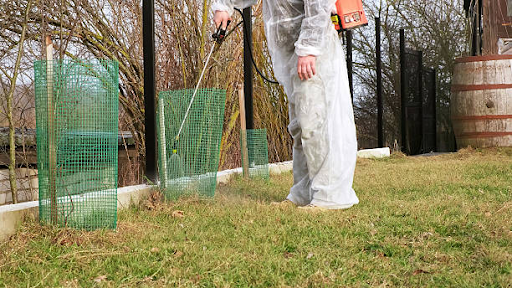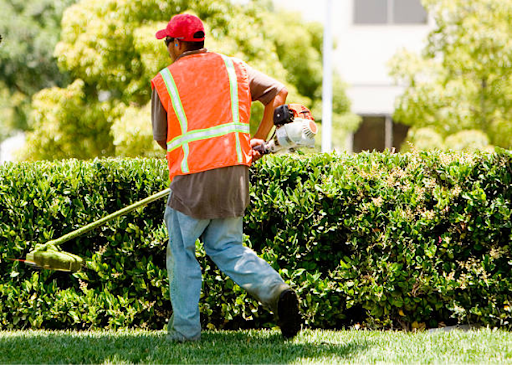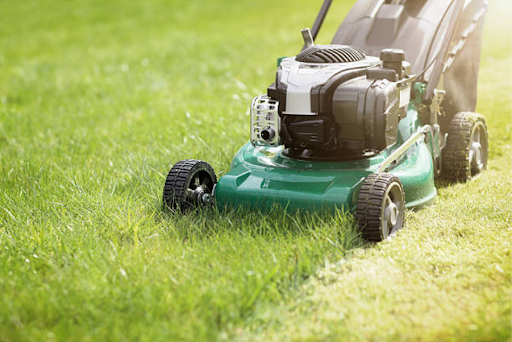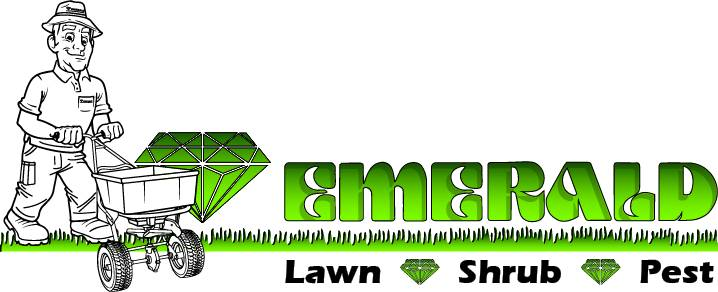Emerald Lawn-Scapes P.O. Box 174 Boonton, NJ 07005-1752
The Benefits of Organic-Based Lawn Care: A Greener Approach
Organic-based lawn care is revolutionizing the way homeowners in Northern New Jersey nurture their green spaces. As environmental concerns grow and sustainable practices become more essential, organic lawn care presents a safer, more eco-friendly alternative to traditional chemical-based methods. In this comprehensive guide, we will explore the multitude of benefits that organic lawn care brings to your yard, your health, and the environment, while offering practical tips and expert insights to ensure your lawn remains lush and vibrant.
A New Era in Lawn Care
For decades, homeowners have relied on synthetic fertilizers, pesticides, and herbicides to maintain immaculate lawns. However, these chemicals often come with hidden consequences. Organic-based lawn care, on the other hand, embraces natural ingredients that work with your yard’s ecosystem. This greener approach not only reduces harmful runoff into waterways but also supports a balanced soil ecosystem, encouraging beneficial organisms that foster plant health.
Adopting organic lawn care is more than just a trend—it’s a commitment to sustainability, environmental stewardship, and the long-term health of your lawn. As you explore this approach, you’ll discover that the benefits extend well beyond an aesthetically pleasing yard.
Healthier Soil, Healthier Lawn
One of the primary advantages of organic lawn care is its profound impact on soil health. Traditional lawn treatments can degrade soil quality over time by stripping away essential microbes and nutrients. Organic treatments, however, enrich the soil by:
- Enhancing Nutrient Cycling: Organic compost, manure, and plant-based fertilizers introduce a diverse range of nutrients and organic matter, supporting a thriving microbial community. This natural cycle leads to improved soil structure, aeration, and water retention.
- Boosting Microbial Activity: Beneficial microorganisms break down organic matter, releasing nutrients that plants can easily absorb. This process not only nourishes the grass but also creates a self-sustaining ecosystem that resists disease and pests.
- Reducing Chemical Dependence: By minimizing chemical inputs, organic methods prevent the buildup of toxic residues that can harm both the soil and surrounding ecosystems.
A healthier soil foundation means your lawn can better absorb water and nutrients, leading to stronger root systems and a more resilient landscape. For professional advice on maintaining a robust lawn, check out our lawn care services.
Environmental and Ecological Benefits
Choosing organic-based lawn care is a commitment to the environment. Conventional lawn care often relies on chemicals that can seep into groundwater, disturb local wildlife, and create imbalances in ecosystems. Organic practices offer several environmental benefits:
Reduced Chemical Runoff
Traditional fertilizers and pesticides can wash away during heavy rains, contaminating streams and lakes and harming aquatic life. Organic treatments use natural ingredients that are less likely to cause runoff or toxicity issues. This results in cleaner waterways and a reduced risk of affecting local flora and fauna.
Biodiversity Support
Organic lawn care encourages biodiversity by fostering a habitat where beneficial insects, earthworms, and microorganisms thrive. These organisms play a critical role in natural pest control, reducing the need for synthetic pesticides and helping maintain a balanced ecosystem. This natural equilibrium can lead to a more resilient lawn that adapts to seasonal changes and varying weather conditions.
Improved Air Quality
By avoiding the combustion of chemicals and reducing the frequency of mechanical applications, organic lawn care practices contribute to improved air quality. This benefit extends to both your immediate environment and the broader community, ensuring that your yard is a safe space for family and pets.
Aesthetic and Practical Benefits for Homeowners
Beyond environmental stewardship, organic lawn care offers tangible benefits that improve the look and feel of your outdoor spaces. Homeowners in Northern New Jersey are increasingly recognizing these practical advantages:
Enhanced Lawn Appearance
Organic fertilizers release nutrients slowly, providing a steady supply to your grass. This gradual feeding helps prevent sudden growth spurts and uneven color variations, resulting in a consistently vibrant and uniform lawn. With proper organic care, you can expect:
- Deep Green Color: Natural fertilizers promote chlorophyll production, leading to a richer, deeper green hue.
- Thicker Turf: Encouraging robust root development produces a denser, more resilient grass that can withstand foot traffic and seasonal stress.
- Natural Weed Suppression: Healthy, well-nourished lawns are more resistant to invasive weeds, reducing the need for harsh herbicides.
Cost-Effective in the Long Run
While the initial investment in organic products may be slightly higher than their chemical counterparts, the long-term benefits often outweigh the costs. Organic-based methods improve soil health, which means fewer inputs are needed over time.
Additionally, a healthy lawn naturally repels pests and diseases, saving money on future treatments.
Safe for Families and Pets
Safety is paramount, especially when children and pets frequently play on your lawn. Organic products minimize the risk of exposure to harmful chemicals, ensuring that your yard remains a safe haven for everyone. This peace of mind is invaluable for families seeking to create a nurturing, toxin-free outdoor environment.
Integrating Organic Practices into Your Lawn Care Routine
Transitioning to organic lawn care might seem daunting at first, but with the right approach, it can be seamlessly integrated into your routine. Here are some practical tips for getting started:
1. Conduct a Soil Test
Before you begin, understanding your soil’s composition is crucial. A soil test will provide insights into its pH level, nutrient content, and microbial activity. This information can help you tailor your organic amendments to suit your lawn’s specific needs.
2. Choose the Right Organic Products
There is a vast array of organic fertilizers, composts, and pest control products available. Look for products that are certified organic and designed specifically for lawn care. Natural ingredients like bone meal, kelp extracts, and composted manure are excellent choices for providing essential nutrients without harmful side effects.
3. Adopt a Regular Maintenance Schedule
Consistency is key to a thriving lawn. Create a schedule for applying organic treatments, mowing, aerating, and watering your lawn. Regular maintenance helps build a robust ecosystem and prevents the overgrowth of weeds and pests. For more expert advice, explore our care tips.
4. Embrace Natural Pest Control
Instead of relying on chemical pesticides, encourage natural predators in your garden. Birds, beneficial insects, and even frogs can help control pest populations. Additionally, organic pest control products, such as neem oil or insecticidal soaps, offer effective solutions without harming beneficial species.
5. Practice Water Conservation
Organic lawns often require less water once they establish a deep root system. However, it is still important to water wisely. Employ techniques such as drip irrigation or early morning watering to reduce evaporation and promote deep watering. This not only conserves water but also minimizes the risk of fungal diseases.
6. Topdress Your Lawn
Topdressing is the process of incorporating a thin layer of nutrient rich soil, compost, or sand (depending on the desired soil structure) to your planting beds, lawn, or parts of your lawn that are bare, thin, or uneven. Topdressing also boosts soil quality and turf density over time. This process is best performed on lawns when the grass is growing vigorously and in conjunction with core aeration to develop a healthier soil profile, faster.
The Science Behind Organic Lawn Care
The effectiveness of organic lawn care is supported by a growing body of research. Studies have shown that organic amendments not only improve soil structure but also increase microbial diversity. A diverse microbial community is critical for nutrient cycling and overall soil fertility. Additionally, organic practices are linked to improved plant resistance to diseases and environmental stresses, leading to a healthier and more resilient lawn.
For instance, research conducted on organic versus conventional fertilization methods indicates that organic treatments lead to longer-lasting improvements in soil organic matter. This increased organic matter supports plant growth and can even sequester carbon, contributing to the fight against climate change.
Community and Economic Impacts
Beyond the benefits for individual homeowners, organic lawn care has a broader positive impact on communities and local economies. As more residents adopt organic practices, neighborhoods can experience a collective improvement in environmental quality. Cleaner waterways, healthier ecosystems, and reduced chemical exposure contribute to a better quality of life.
Economically, the demand for organic lawn care products and services has created opportunities for local businesses. In Northern New Jersey, companies specializing in sustainable lawn care are on the rise, offering expert advice and tailored services that meet the growing demand for eco-friendly solutions. By supporting these businesses, homeowners are not only investing in their own properties but also contributing to the local economy and community well-being.
Expert Insights and Testimonials
Homeowners who have made the switch to organic lawn care often report remarkable transformations in their yards. Many note that the gradual improvement in soil health results in a more robust, natural appearance that is both inviting and sustainable. Expert landscapers emphasize the importance of patience and consistency when transitioning to organic methods. While the results may take a season or two to become fully apparent, the long-term benefits are undeniable.
One local homeowner remarked, “Switching to organic lawn care was one of the best decisions we made for our yard. Not only does it look better, but we feel great knowing that we’re protecting our family and the environment.” Such testimonials underscore the real-world impact of embracing an organic, eco-friendly approach.
Overcoming Common Challenges
While the benefits of organic-based lawn care are clear, it is important to acknowledge some common challenges and misconceptions:
Initial Transition Period
When transitioning from chemical-based to organic methods, there may be an adjustment period. During this time, your lawn might appear less vibrant as it adapts to the new practices. However, with patience and proper care, the natural processes will lead to a healthier and more sustainable lawn over time.
Perceived Higher Costs
Some homeowners worry that organic products are more expensive. While the upfront cost can be higher, remember that a healthier lawn requires fewer interventions in the long run. The investment in organic care often pays off through reduced water usage, lower pest management costs, and enhanced property value.
Education and Expertise
Understanding the science behind organic lawn care can seem overwhelming. However, numerous resources—from online guides to local lawn care experts—can help you navigate the process. Our team at Emerald NJ is dedicated to providing the knowledge and services you need. Feel free to reach out through our contact us page for personalized advice and expert guidance.
Sustainable Practices for the Future
Organic lawn care is not only a method for maintaining a beautiful yard—it is also a sustainable practice that benefits future generations. By reducing chemical inputs and promoting natural processes, we are contributing to a healthier planet. Sustainable practices in lawn care extend to the careful management of resources such as water and energy, aligning with broader environmental goals.
As climate change and environmental degradation become pressing global issues, adopting organic practices can be a meaningful step towards reducing your ecological footprint. Whether you are passionate about preserving local wildlife, ensuring safe play areas for your children, or simply enjoying a naturally beautiful lawn, organic lawn care represents a positive path forward.
Integrating Organic Lawn Care with Other Services
For homeowners looking to elevate their outdoor spaces even further, combining organic lawn care with complementary services can yield exceptional results. For example:
- Shrub and Garden Care: Organic practices extend to every corner of your landscape. Consider integrating organic shrub care to create a cohesive, healthy ecosystem throughout your yard. Visit our dedicated shrub care page for more information on maintaining thriving shrubs.
- Seasonal Maintenance: Regular upkeep through seasonal adjustments ensures that your lawn remains resilient against harsh weather conditions. Our comprehensive lawn care services offer seasonal treatments that align with organic principles, ensuring year-round vibrancy.
- Custom Care Tips: Every lawn is unique. Access expert advice tailored to your specific needs by exploring our care tips. Our resources can help you fine-tune your organic approach and troubleshoot any challenges you encounter.
Why Northern New Jersey Homeowners are Embracing Organic Lawn Care
Northern New Jersey is known for its diverse weather conditions, from hot, humid summers to chilly winters. This variability can pose unique challenges to maintaining a healthy lawn. Organic lawn care is particularly well-suited to these conditions because it builds resilience into the soil and plant systems. The slow-release nature of organic fertilizers means that your lawn receives a steady supply of nutrients, adapting naturally to the changing seasons.
Moreover, the natural beauty of Northern New Jersey landscapes calls for care that is both aesthetically pleasing and environmentally responsible. By choosing organic lawn care, you are not only investing in a greener future but also preserving the natural charm of your community.
The Bottom Line: A Greener, Healthier Future
In summary, organic-based lawn care offers a compelling, sustainable alternative to conventional chemical treatments. By embracing natural practices, homeowners can enjoy numerous benefits:
- Healthier soil and stronger grass roots
- Reduced environmental impact and improved biodiversity
- Enhanced lawn aesthetics and long-term cost savings
- A safer environment for families and pets
Transitioning to organic lawn care may require some adjustments, but the rewards are substantial. As more Northern New Jersey residents adopt these practices, the cumulative impact on local ecosystems, community health, and property values will be significant. With expert guidance and a commitment to sustainability, your lawn can become a model of eco-friendly beauty.
For expert advice on transforming your yard with organic methods, consider exploring our comprehensive lawn care services. Our team is dedicated to helping you achieve a greener, healthier, and more sustainable outdoor space. Together, we can build a future where every lawn is a testament to the power of organic, eco-friendly practices.
By choosing organic lawn care, you’re not only making a decision that benefits your immediate surroundings—you’re taking a stand for the environment and paving the way for a more sustainable future in Northern New Jersey. Let your lawn be the canvas that reflects your commitment to nature, health, and lasting beauty.













